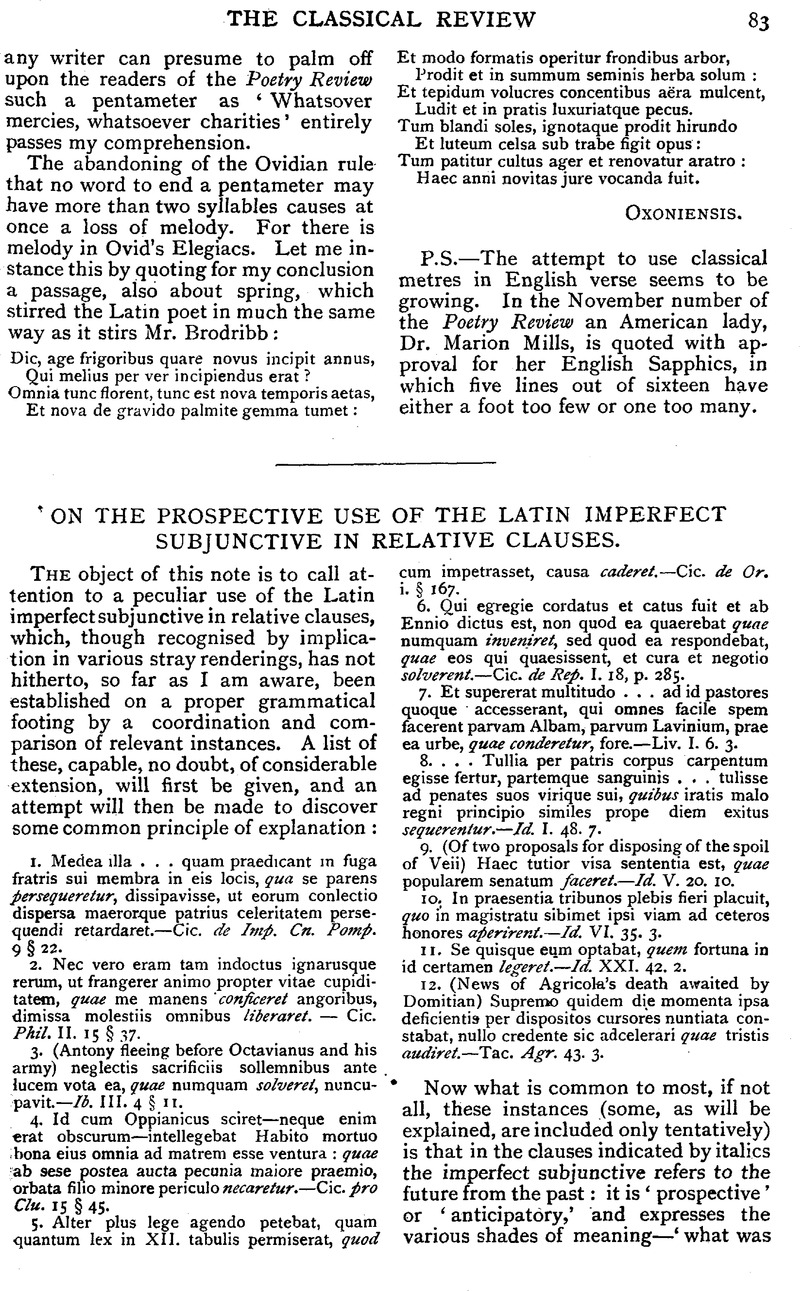Published online by Cambridge University Press: 27 October 2009

1 As the term ‘prospective’ was first introduced by Prof. Sonnenschein, I should like to bring the purport of this note into some relation with his views, and especially with his valuable treatment of the subjunctive mood in his New Latin Grammar (1914). I fail for two reasons to find there an adequate account of the particular construction under discussion. (1) The prospective subjunctive is confined to certain temporal clauses (§ § 339–41). (2) The uses of the subjunctive are divided under three heads according as it denotes (a) what is to be done (the shall-subjunctive), (b) what would happen under certain imagined conditions (the subjunctive of conditional futurity), or (c) has a weakened meaning, which does not here concern us. Such instances as he calls ‘prospective’ fall entirely under (a)—though it is true he suggests that (a) and (b) may have had a common original source (p. 162 footnote). Now it is beyond the scope of this note to go into the question of the original meaning of the subjunctive. I should be satisfied, provisionally at any rate, with the account given of the Greek subjunctive in Monro's Homeric Grammar, § 274, that it ‘may be said in general to express either the will of the speaker or his sense of the necessity of a future event.’ But in any case I assume that in classical Latin the subjunctive had acquired several derivative or differentiated meanings, and taking Prof. Sonnenschein's classification as a basis I should bring the use exemplified in this note decidedly under (b) not (a).